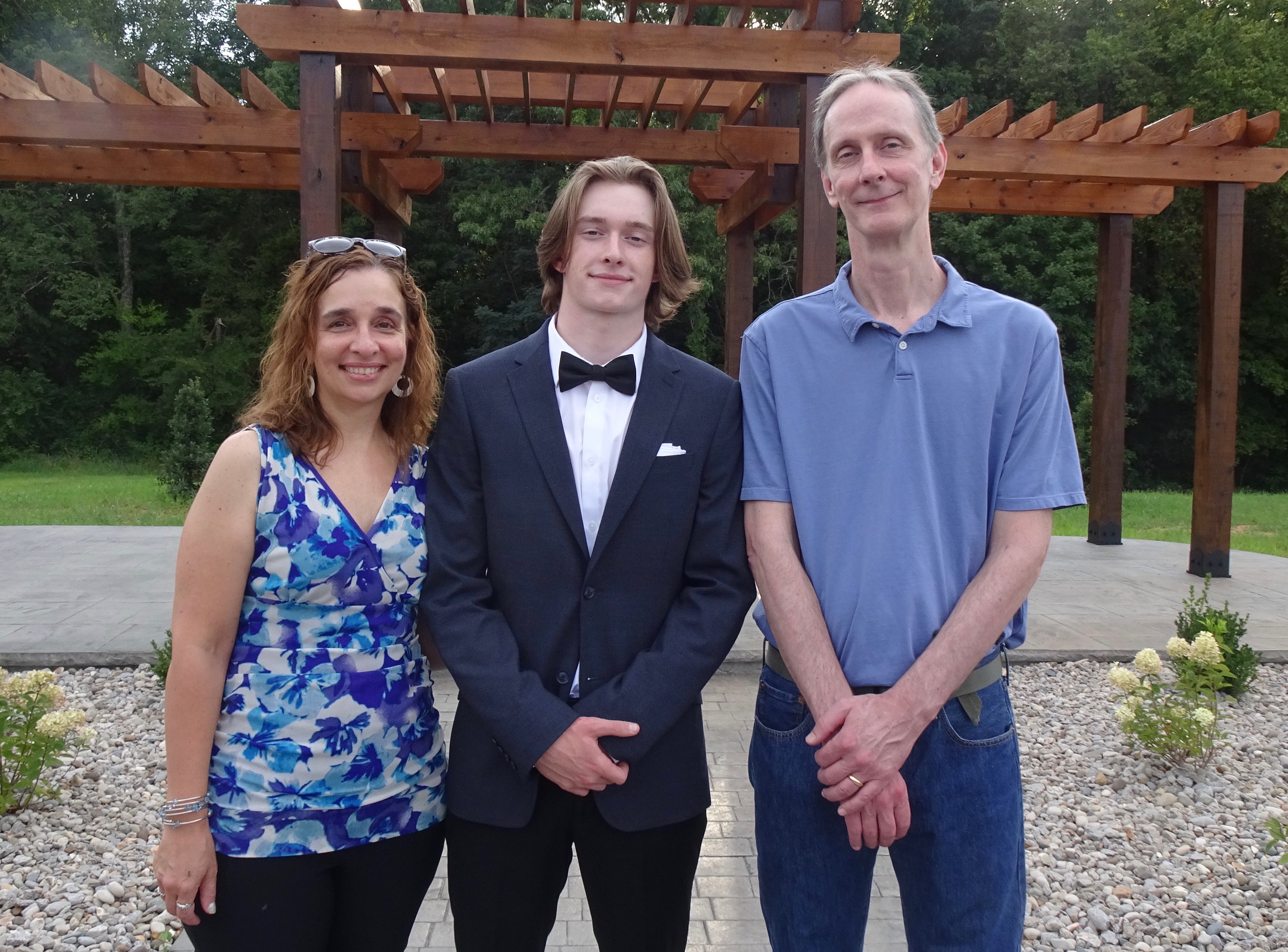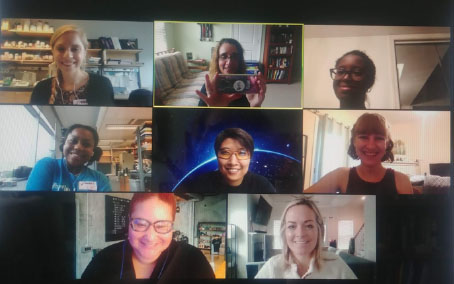Maureen Gannon grew up in Queens, New York. She received her B.S. in Biology from Molloy College in Rockville Centre, NY and her M.S. in Biology from Adelphi University in Garden City, NY. She then received her Ph.D. in Cell Biology and Anatomy from Cornell University. Her thesis project, conducted in the lab of Dr. David Bader, examined cardiac organogenesis and the formation of the chambers of the heart in the developing embryo. Dr. Gannon pursued her postdoctoral training in the laboratory of Dr. Chris Wright at Vanderbilt University, where she studied genes that regulate embryonic pancreas development and expression of the insulin gene.
Dr. Gannon joined the Vanderbilt faculty in 2001. She is currently Professor and Associate Dean for Faculty Development in the Vanderbilt University School of Medicine with secondary appointments in the Departments of Molecular Physiology & Biophysics and Cell & Developmental Biology. The research in her laboratory focuses on the function and regeneration of insulin-producing beta cells. Her work has implications for Type 1 and Type 2 diabetes. Her research has been funded by grants from the NIH, JDRF, ADA, and the VA. Dr. Gannon has presented her research at conferences in the US, Europe, Asia, and the Middle East.

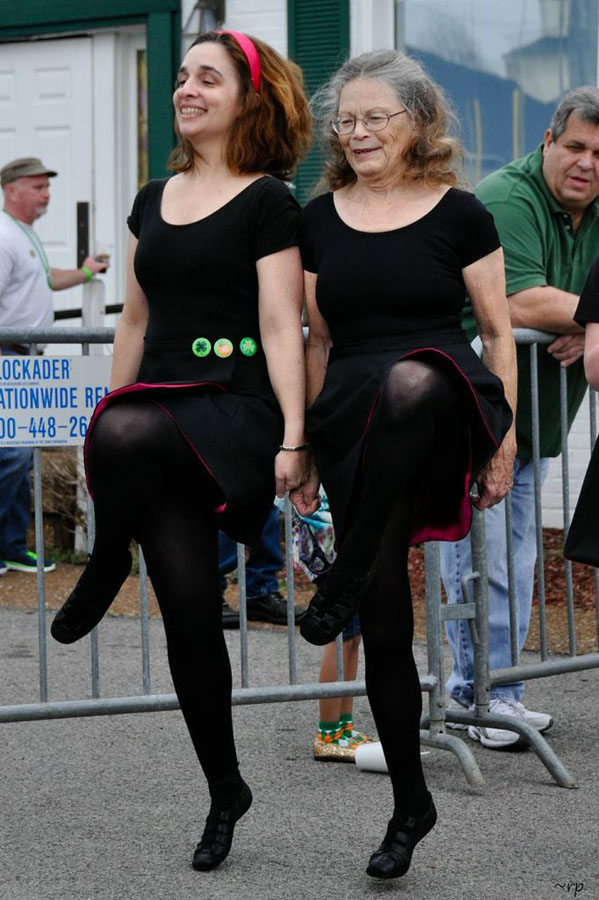
Favorite Irish food and why:
Bailey's (technically not a food) but I love the taste!
We heard that you are a world renowned Celtic singer and dancer. How long have you been celebrating Irish culture in this way, and what led you to it?
The neighborhood I grew up in Queens, NY had a lot of Irish families. I am half Irish and half Italian. My paternal grandfather grew up in Ireland. Many of my friends took Irish dance lessons to maintain a connection to their culture. I took Irish step dancing lessons from age 7-9 and then stopped because the school I attended closed. In college and graduate school I took off every St. Patrick's Day to attend the big parade in Manhattan. I started dancing again when I moved here in 1996. So, I have been dancing with the Nashville Irish Step Dancers for 25 years! I compete and perform in shows. I also compete and perform in Celtic singing. As an adult, I have competed in Irish dance regionally (winning many first place trophies with my team) and at Nationals, where my team came in 3rd! I have danced on stage at the Grand Ol Opry and the Ryman Auditorium (with The Chieftains) and sung at TPAC. Only in Nashville! Our dance school puts on a big show every year called Celtic Rhythms on Fire and I sing and dance in that every year. We are getting ready for that show and other St. Patrick's Day shows right now!
When you were 5, what did you want to be when you grew up?
The earliest I remember wanting to be anything specific is age 10, when I wanted to be a paleontologist. I think when I was 5 I wanted to be an artist (painting) and writer (books). I drew and wrote a lot and still do.
How/When did you decide to become a scientist?
Age 10. I wanted to be a paleontologist. I spent a lot of time digging for fossils in my back yard (didn't find anything). But when I was 12 my dad told me that unless I did something to help people while I was here on earth, God would not let me into heaven. My dad did not think that digging up dinosaur bones was very helpful to people. So I changed my goals and decided to do research on embryology and try and prevent birth defects. My PhD is in Developmental Biology. I still love paleontology and collect fossils!
How long have you been at Vanderbilt?
25 years as of June 1, 2021. I came here for a postdoc position.
What does your lab do/study?
My lab studies pancreas organogenesis and genes that regulate pancreas cell fate decisions. We are mainly interested in the differentiation and expansion of insulin-producing beta cells.
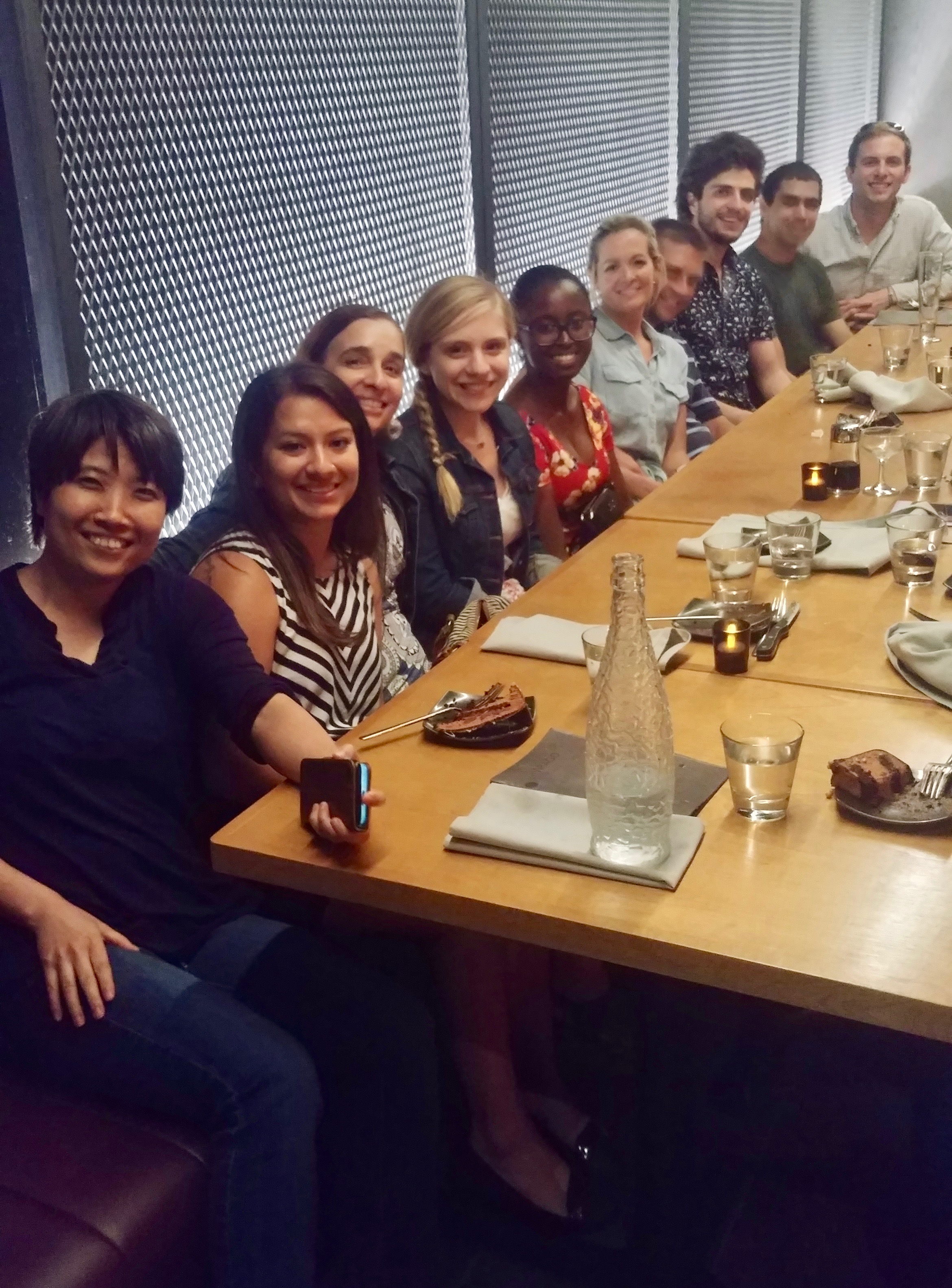
What is one topic in your field that you are excited about right now?
I am very excited right now about the Developmental Origins of Health and Disease (DOHaD), which is the hypothesis that in utero environmental exposures influence adult susceptibility to disease. In particular, we are interested in how exposure to maternal over-nutrition and obesity-associated chronic inflammation during pregnancy could affect pancreas development and beta cell function in the offspring, leading to increased susceptibility to Type 2 diabetes later in life.
Tell us about your journey into a leadership roll. What actions did you take, and who did you surround yourself with to get you to this point?
I have been fortunate enough to hold a few different leadership roles at VUMC. In 2011, my department chair (Dr. Nancy Brown, Medicine) asked me to become the inaugural Vice Chair for Faculty Development. Faculty mentoring and career development were very important to her to enhance recruitment and retention of outstanding faculty. I am still not sure why she asked me to lead this effort for the largest department on campus, but I loved working with her and am so grateful for that opportunity. Nancy supported me to participate in the AAMC Mid-Career Women's Leadership Training program in 2011 and then nominated me for ELAM (Executive Leadership in Academic Medicine), which I completed in 2019. I learned so much in that role and truly enjoyed it! I was in this role until 2019. In 2011, I was also asked by Dr. Al Powers, Director of the Diabetes Center, to take on the role of Director of Enrichment, Training and Outreach for our NIH-funded Diabetes Research and Training Center. In this role, I organized our weekly seminar series and our annual Diabetes research day. I interacted with different research interest groups across campus and learned a lot about team building. I was in this role until 2017. Outside of the institution, I have had national leadership roles in the American Diabetes Association, chairing two different committees. Most recently in the fall of 2019, I became the inaugural Associate Dean for Faculty Development in the School of Medicine (for VUMC employed faculty). Unlike my previous leadership roles, this was a posted position that I applied and interviewed for. To me, it was my dream job...helping all of our faculty to obtain the skills they need to be their best and to succeed in all facets of their careers. I absolutely love it! I must thank Drs. Balser and Raiford for entrusting me with this opportunity. At all stages of my career, I have been fortunate to have outstanding, caring, and supportive mentors (men and women) with whom I could give and receive honest, helpful feedback. I think having these REAL relationships with people to whom I report has been key.
Being in department leadership, what has been your biggest challenge?
I think the biggest challenge is balancing my time between the lab and leadership. I know that my current lab members are not getting the same experience that the personnel I had in the early days of my faculty position received. I try my best to be present and to be accessible and hope that they know that I am here for them. But I am aware that my time is divided and sometimes I cannot mentor in exactly the way I might like.
What has been your biggest challenge being a woman in a leadership position?
There have definitely been some times in my career where my commitment to a career in academic research was questioned because I am a woman and wanted a family. For example, I was asked in graduate school why I wanted my MS when I already had my MRS. Also, when I was offered the faculty position here 20 years ago someone told me that they did not think I had the intensity required to succeed at a place like Vanderbilt because I wanted a family and had hobbies (Irish dancing!!). Other people have questioned whether some women have the tenacity to stick with this career through the (often) challenging periods, and whether women in general are too risk-averse as scientists. But I honestly have not felt any barriers as a woman in my leadership roles here at VUMC. I have felt nothing but supported and heard and appreciated.
Would you give any advice, as a woman in a leadership position, to other women wanting to advance their careers?
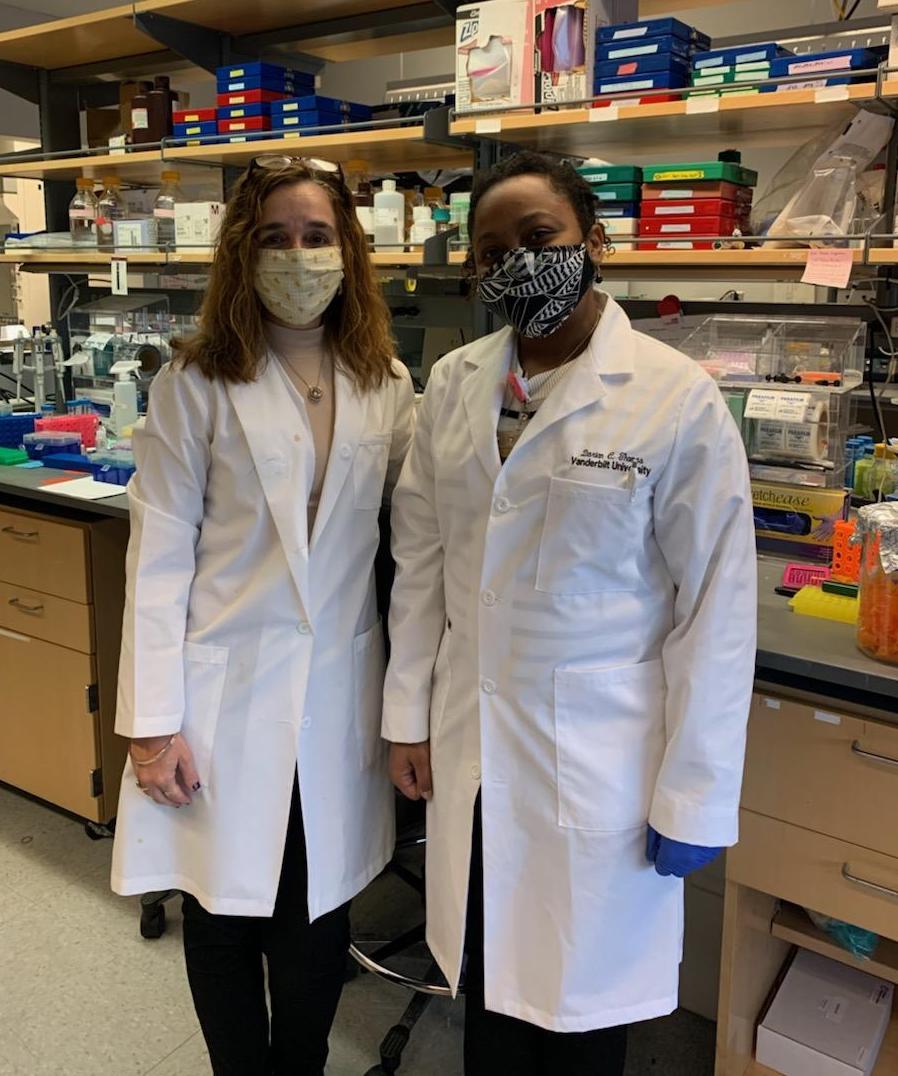
I think it is important to realize that leadership interactions are about building trust and relationships with colleagues. We can all work on improving our communication and listening skills. I know I often want to be right (at home and at work!) and want to try to make people see my point of view. In my journey as leader, I have learned to see things from someone else's point of view and tried to see the best in others and their intentions. It is so important to have peers and people above and below you in the academic hierarchy who you really trust and who you can go to and get honest, constructive feedback, bounce ideas off of, and role play for difficult conversations. Find those people and hold onto them...and be that for someone else!
What can we do to support gender equality?
I think we ALL have to be intentional about not always thinking of the same people (often senior male faculty) to nominate for awards, speaking engagements, and leadership opportunities. We need to look around the room and ask ourselves who is missing from the table and how can we get them there? We also should not assume that a woman with young children or other family obligations would be too busy to take on a particular task. I hear this a lot. "Oh no, don't ask her. She has young kids. She will probably say no. She's too busy". Ask her. Let her say yes or no. Don't decide for her. Tell her it's OK to say no. But let that be her choice.
Other pearls of wisdom?
Having a partner and family who wants you to succeed and appreciates and supports your passions is also super-important! My son is a high school senior and is an Eagle Scout. I volunteered with his cub scout and boy scout troops for many years…lots of camping!
